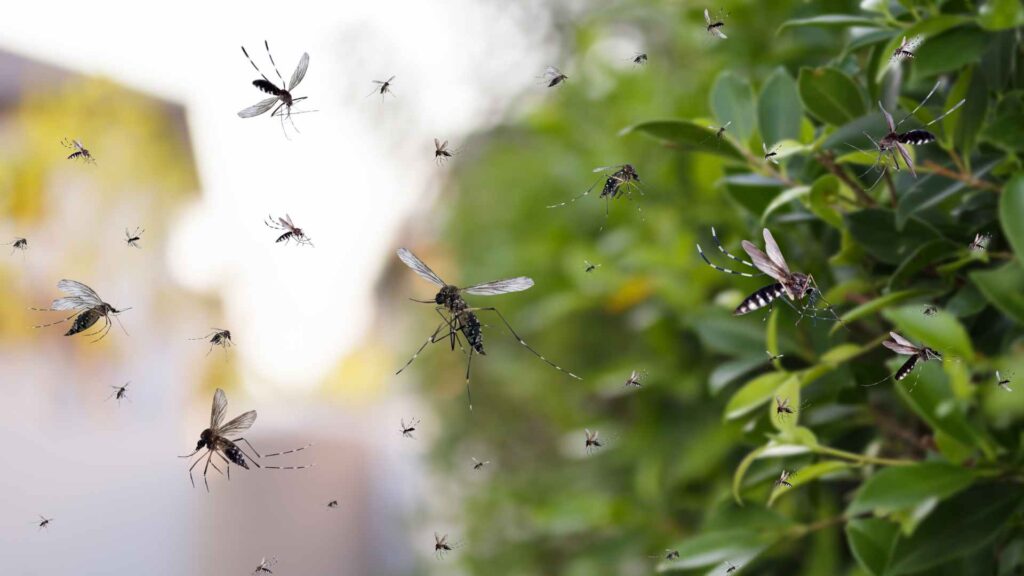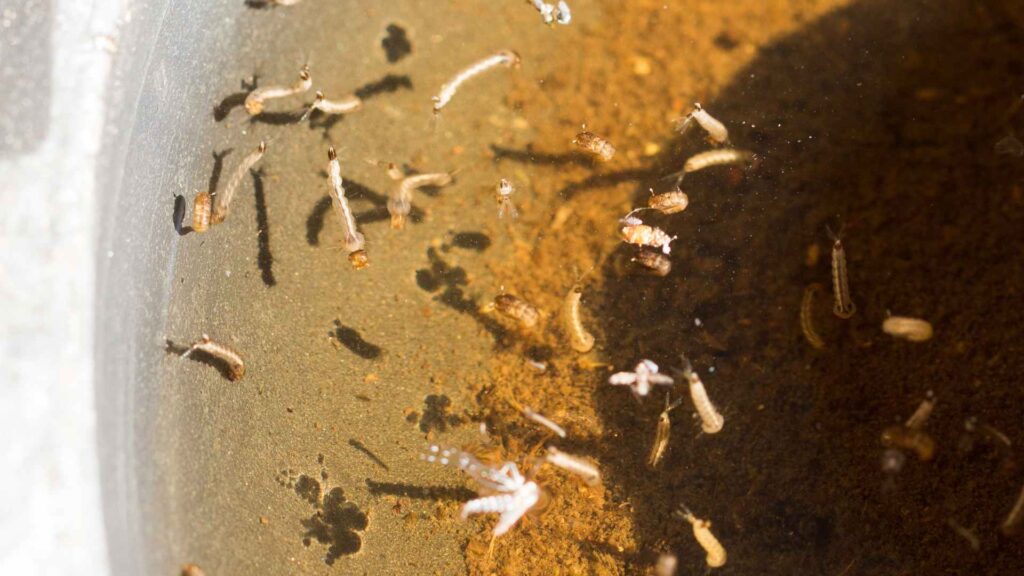Table Of Content
ToggleBattling bloodsuckers? Chemical insecticides might be the first thought, but they often leave a trail of environmental damage and mosquito resistance. There’s a powerful weapon in our arsenal, and it doesn’t come in a spray can.
This article explores the exciting world of biological mosquito control, a safe and sustainable approach that utilizes nature’s own warriors to combat these buzzing foes.
Biological control is a method of managing pest populations using living organisms, such as predators, parasites, and microorganisms. In the context of mosquitoes, this translates to utilizing nature’s own tools to keep mosquito populations in check.
Chemical insecticides have been the traditional weapon against mosquitoes. However, these chemicals often come with a hefty downside:
Biological control offers a safer and more sustainable alternative. It leverages natural predators and microbes that target mosquitoes specifically, minimizing harm to the environment and human health.
Explore your pest control options for a safer home today.

Nature has provided a diverse arsenal of creatures and microbes that can help us combat mosquitoes. Let’s delve into some of the key players:
Secure your home with the right pest control plan. Find out how.
Steps for Implementing a Biological Control Program
A successful biological control program requires a well-defined approach. Here’s a breakdown of the key steps:

While biological control offers numerous advantages, it’s essential to acknowledge its limitations:
Tailor your pest management strategy. Start now.
Biological control is most effective when used as part of an integrated mosquito management (IMM) strategy. IMM combines various methods, including:
By combining biological control with these complementary strategies, we can create a more comprehensive and sustainable approach to mosquito management.

Biological control represents a powerful and promising tool in the fight against mosquitoes. By harnessing nature’s own defenses, we can reduce our reliance on harmful chemicals and create a safer environment.
As a pest control expert, I strongly believe that biological control plays a vital role in integrated mosquito management. This approach minimizes environmental impact, reduces the risk of mosquito resistance to insecticides, and promotes a healthier ecosystem.
The biological method for controlling mosquitoes involves using natural predators, parasites, and microorganisms to manage mosquito populations.
Three common methods to control mosquitoes are biological control using natural predators, chemical insecticides, and habitat modification to reduce breeding sites.
The biological agents to control mosquitoes include predatory fish such as mosquito fish, insect predators like dragonflies, microbial agents such as Bacillus thuringiensis israelensis (Bti), and fungi like Metarhizium anisopliae.
Predatory fish, insect predators, microbial agents, and fungi can all be used for the biological control of mosquitoes.
Your trusted pest control experts in Southern California. Keeping your neighborhood pest-free!